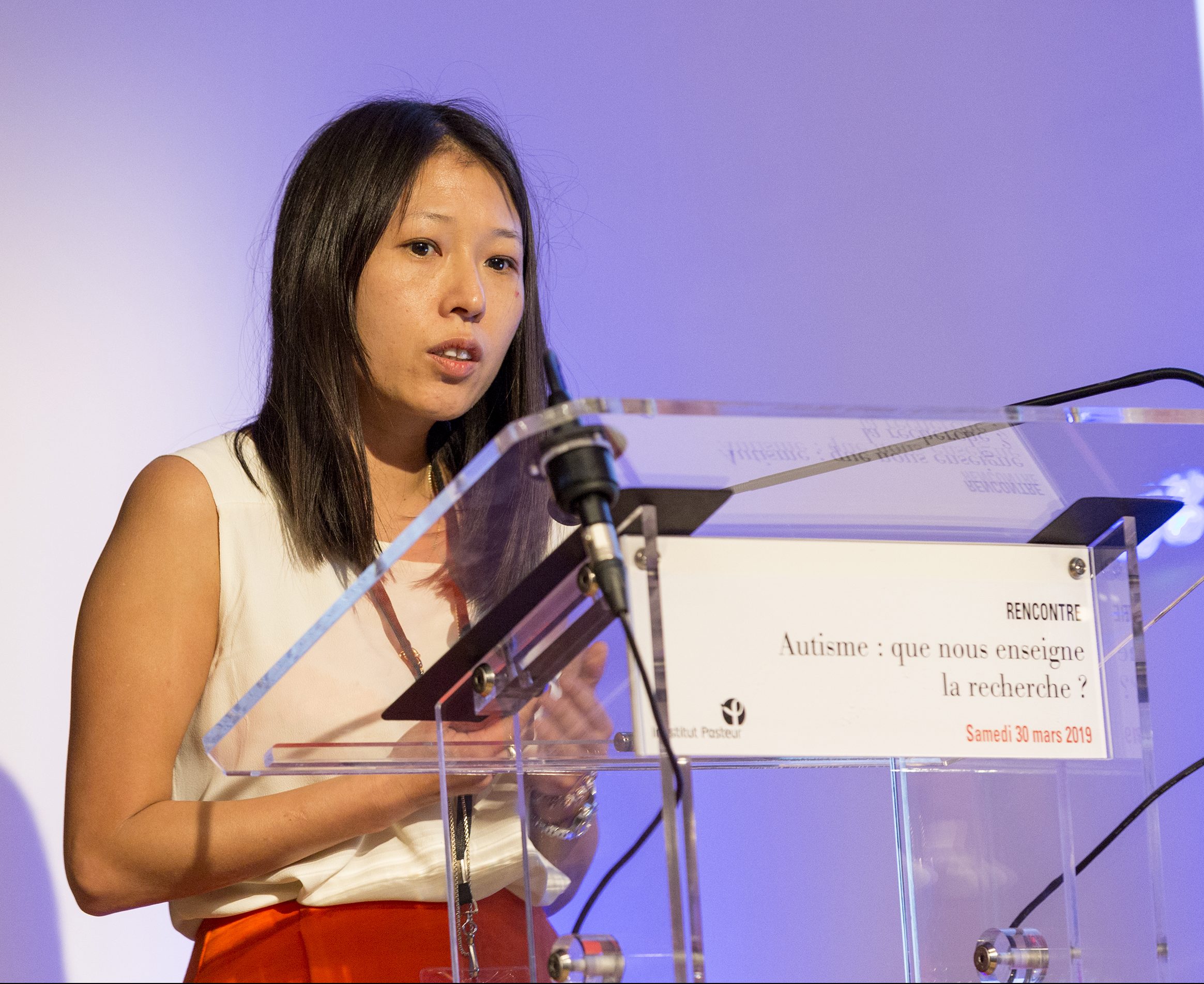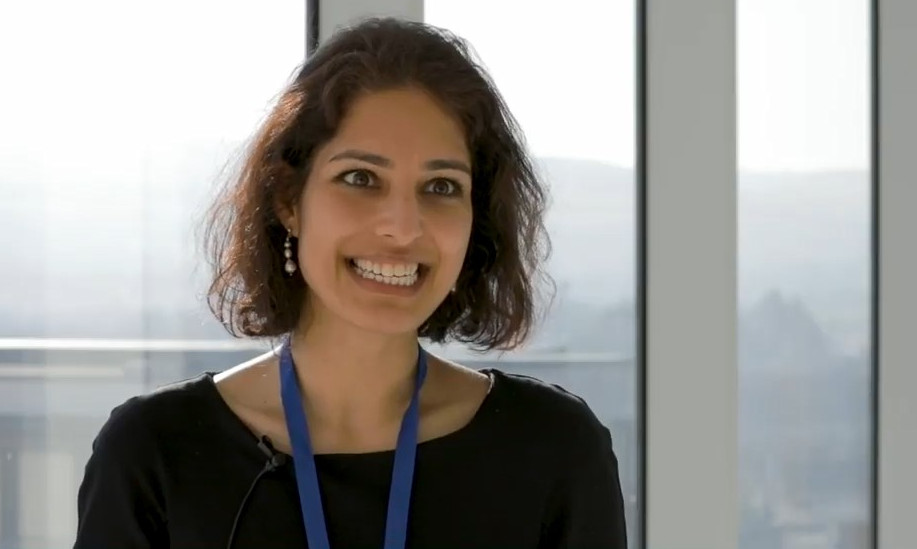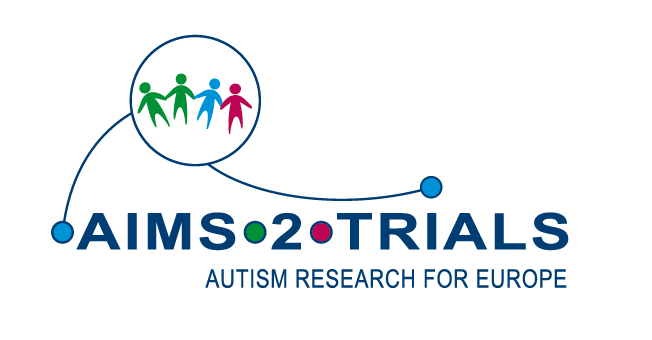AIMS-2-TRIALS researchers met with autistic people at events across Europe about the future of autism research.
At Trinity College Dublin, Ireland, team members from the rare genetic conditions study led an event in February to foster two-way dialogue about the future of autism genomics. One of the organisers, Louise Gallagher, took to Twitter (below) to share her enjoyment. Speaking in Dublin, Amber Ruigrok of the AIMS-2-TRIALS communications team said, “Sharing our research is always important, but what’s even more important is to hear from the autism community, to really understand what they want.”
A space to exchange ideas and hear new perspectives, video produced by Trinity College Dublin
Autism genetics was also explored during a family focused event in March at the Institute Pasteur, Paris, where Eva Loth (below, left), Deputy Director of AIMS-2-TRIALS, and Richard Delorme, of the arbaclofen and pre-school studies, discussed their vision for research (image copyright: Institut Pasteur, Thomas Lang 2019).

Meanwhile in London, Tony Charman, leader of the European Autism Clinical Research Network, exchanged ideas with autistic people through the initiative Changing the Face of Autism Together. In his portrayal by an artist and a podcaster (below), Charman discusses the future of participatory research and says, “We have an ‘open door’ moment. […] that can drive what the funders are thinking and what other colleagues are thinking and I would urge people to be ambitious.”
A portrait and podcast of Tony Charman, produced by NIHR Maudsley BRC
Scientists across AIMS-2-TRIALS’ large research programme are independently reaching out to and learning from the autism community in dynamic ways. This complements the programme’s own initiative to involve directly the independent perspectives of autistic people, their families and allies through a group of Autism Representatives (A-Reps). Almost 100 people from across Europe applied to join the group in March and applications have been reviewed by the steering committee. The established A-Reps group will now begin to work with scientists to provide valuable input on their research and its direction.









